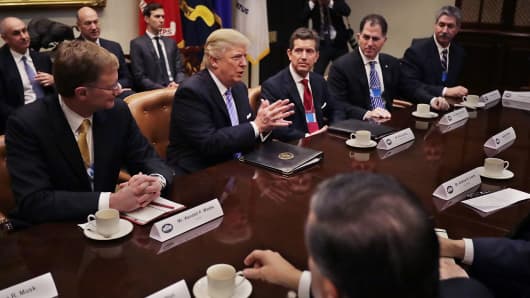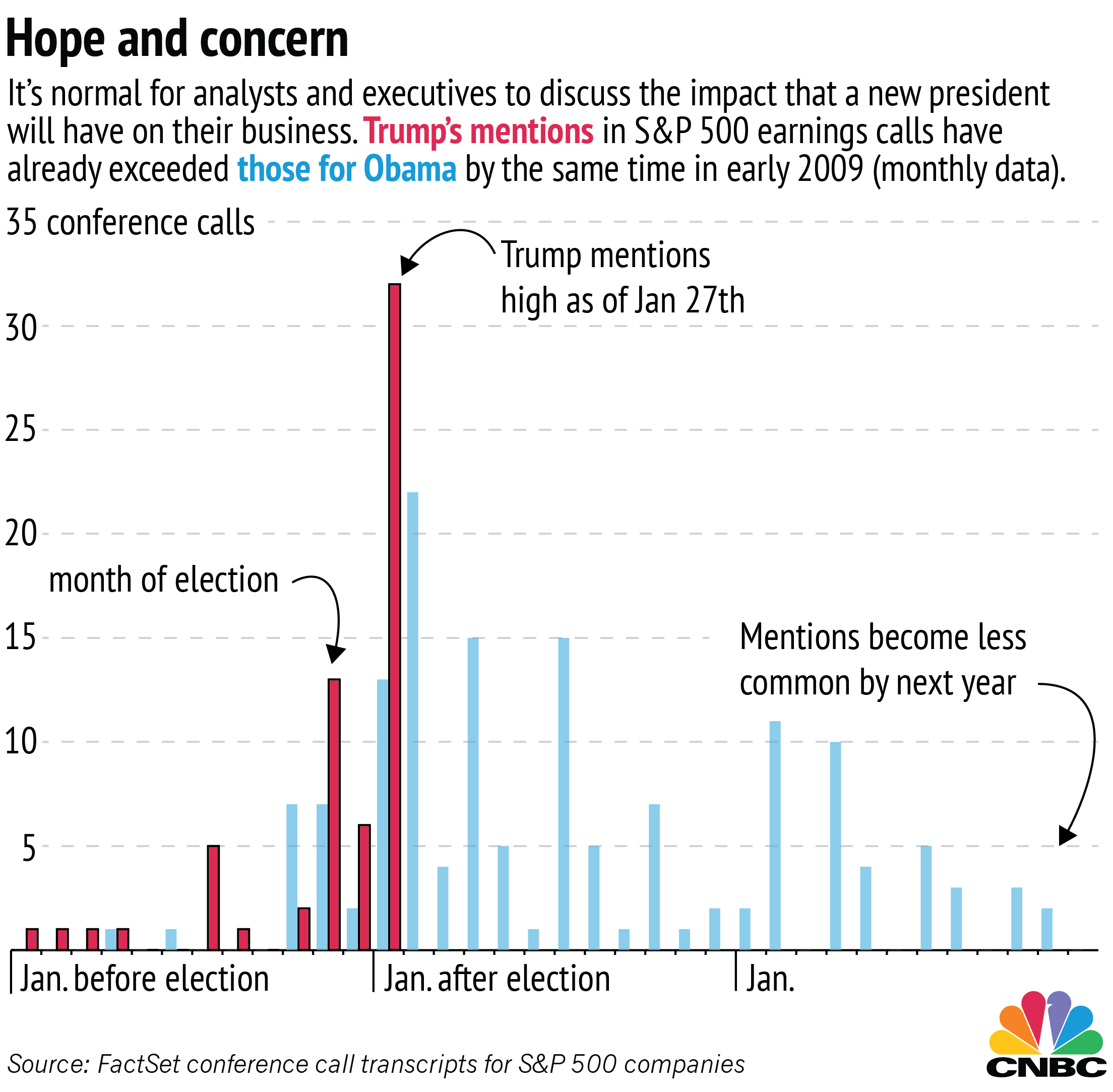Since the election, defense contractors have found themselves in the crosshairs of Trump's frequent Twitter attacks, often to the detriment of their stock prices. Executives from Boeing, Lockheed Martin and United Technologies all tried to ease concerns about how Trump's brash public rhetoric will affect their business.
"It's not about slashing our profit; it's not about our margins when we have those discussions. It's about how do we get the cost of the aircraft down today and in the future," Lockheed CEO Marillyn Hewson said of her meetings with Trump on the cost of the company's F-35 fighter program.
Despite harsh words from Trump on China, Boeing CEO Dennis Muilenburg said the president understands the importance of trade with China. He suggested that opening a finishing center in China — the plant has been planned since 2015 — could fit with Trump's "America First" rhetoric. Each plane that's "finished" in China is built mostly in the U.S., he said.
"As we increase sales in China, we increase building airplanes here in the U.S.," he said. "It's a great example of how growth in China creates growth in U.S. manufacturing jobs." About 13 percent of the company's 2015 revenue came from China, according to FactSet. China is likely to buy more than $1 trillion worth of planes over the next 20 years, Boeing said in September.
Twice, Muilenburg was asked by reporters about Trump's use of social media to go after companies he wanted to shame. He pivoted from describing "what it was like to be the target of critical tweets" about the company, saying that he was encouraged by the fact that Trump was "engaging" government contractors.
"We had some targeted discussions," he said. "I think having direct, open dialogue is productive and very good for the future."
Boeing's stock dropped about 1 percent following Trump's Dec. 6 tweet, which said an order for a new Air Force One should be canceled because of its high cost.





